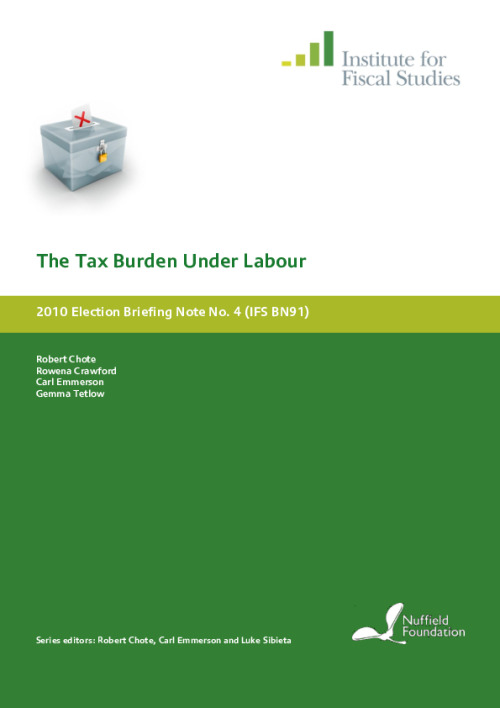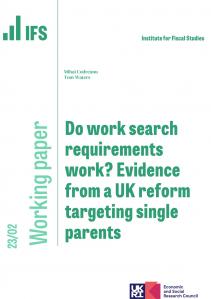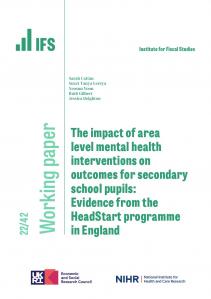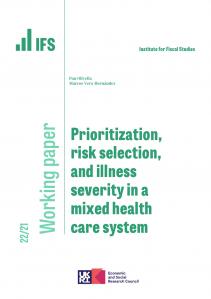Downloads

bn91.pdf
PDF | 974.21 KB
This election briefing note examines the evolution of the tax burden over the last 60 years. Section 2 begins by giving an overview of revenues over time. It compares the change in the tax burden since 1997 with historical changes and analyses how it reflects changes in the relative growth rates of revenue and national income. Section 2 also examines how the composition of tax revenues has changed since Labour came to power and compares this to the trend seen over the period in which the Conservatives were in power from 1979 to 1997. Finally this section puts the change in the tax burden since Labour came to power in an international context. Section 3 examines the extent to which changes in the tax burden since Labour came to power can be explained by discretionary policy changes, economic growth and other factors.
Authors

Deputy Director
Carl, a Deputy Director, is an editor of the IFS Green Budget, is expert on the UK pension system and sits on the Social Security Advisory Committee.

Robert Chote

Gemma Tetlow

Rowena Crawford
Report details
- DOI
- 10.1920/bn.ifs.2010.0091
- Publisher
- Institute for Fiscal Studies
Suggested citation
Chote, R et al. (2010). The tax burden under Labour. London: Institute for Fiscal Studies. Available at: https://ifs.org.uk/publications/tax-burden-under-labour (accessed: 2 July 2024).
More from IFS
Understand this issue

Election Special: Your questions answered
27 June 2024

Election Special: The big issues politicians haven't spoken about
25 June 2024

Cuts to council services likely unless cost pressures abate – even with the biggest council tax increases for 20 years
21 June 2024
Policy analysis

How would the parties’ tax and spending plans affect Scotland and Wales?
28 June 2024

How should we interpret parties’ public spending pledges this election?
23 June 2024

Main parties’ manifestos tell us little about the funding individual public services would actually receive
23 June 2024
Academic research

Do work search requirements work? Evidence from a UK reform targeting single parents
1 February 2023

The impact of area level mental health interventions on outcomes for secondary school pupils: Evidence from the HeadStart programme in England
13 October 2022

Prioritization, risk selection, and illness severity in a mixed health care system
16 June 2022